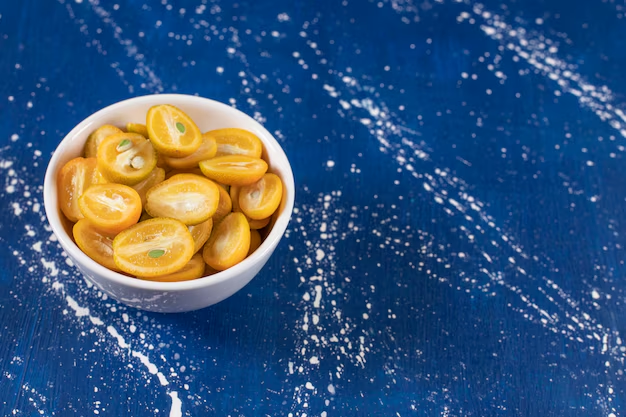How Long Do Cooked Potatoes Last in the Refrigerator?
Few vegetables are as versatile and universally loved as the humble potato. Whether mashed, baked, or fried, potatoes are a staple in many households. However, once they are cooked and we find leftovers in the fridge, a common question arises: how long do these cooked potatoes last before they go bad? Understanding the shelf life of cooked potatoes is crucial not only for maintaining flavor and texture but also for ensuring food safety. Let’s dive into the fascinating and practical world of storing cooked potatoes.
🥔 The Basics of Storing Cooked Potatoes
Before diving into the specifics, let's establish some basic rules about storing cooked potatoes. Proper refrigeration and handling are crucial to extending the life of your tuber treasures.
Why Refrigeration Is Essential
Cooked potatoes, like many other foods, need to be refrigerated to slow down bacterial growth. Temperature plays a significant role in maintaining the freshness and safety of any food. By keeping potatoes refrigerated at a temperature below 40°F (4°C), you significantly reduce the risk of spoilage and foodborne illnesses.
General Timeline: How Long Do Cooked Potatoes Last?
Generally, cooked potatoes last about 3 to 5 days in the refrigerator. This timeline can vary based on several factors, such as how the potatoes were prepared and stored. It’s crucial to observe your potatoes for any signs of spoilage within this timeframe.
Signs Your Cooked Potatoes Have Gone Bad
Understanding the indicators of spoilage can help prevent the consumption of unsafe foods. Here are some common signs that your cooked potatoes are past their prime:
- Unpleasant Odor: One of the first signs is a sour, off-putting smell. Fresh potatoes have a subtle, earthy scent.
- Discoloration and Mold: Look for any unusual colors, like brown or green patches, and any signs of mold.
- Taste: If there's a noticeable change in flavor, it's best to avoid eating them. Trust your taste buds.
- Texture: Potatoes that have become slimy or too soft may indicate spoilage.
🛡️ Tips to Extend the Shelf Life of Cooked Potatoes
Proper storage techniques can influence how long your cooked potatoes remain fresh and safe to eat. Let’s explore some handy tips.
Cool Them Quickly
After cooking, allow the potatoes to cool quickly before storing them in the refrigerator. Rapid cooling helps prevent bacterial growth. Consider dividing large batches into smaller portions for quicker cooling.
Use Airtight Containers
Once cooled, store the potatoes in airtight containers. This prevents exposure to air and moisture, which can accelerate spoilage. Airtight containers also help in retaining the potatoes' texture and flavor.
Avoid Mixing with Raw Foods
To minimize the risk of cross-contamination, ensure that cooked potatoes are stored away from raw meats or other uncooked ingredients. Using designated storage areas in your fridge can help maintain food safety.
Effects of Different Cooking Methods
The way potatoes are prepared can also affect their shelf life.
Boiled Potatoes
Boiled potatoes tend to have a soft, moist texture. They can absorb flavors and moisture from the environment, so it's important to store them well-sealed. Boiled potatoes typically last 3-5 days when stored properly.
Baked or Roasted Potatoes
Baked or roasted potatoes, having a drier exterior, can last slightly longer than boiled potatoes due to reduced moisture content. Store them uncut if possible to further extend their lifespan.
Mashed Potatoes
With added ingredients like butter or milk, mashed potatoes may have a slightly shorter shelf life due to these perishables. 3-4 days is a safe range for mashed potatoes in the fridge.
Ensuring Safety with Leftover Potatoes
Reducing food waste is admirable, but food safety should always be a priority. Here's how to ensure your potatoes are safe to consume:
- Check Expiry Regularly: Make it a habit to check stored leftovers frequently and discard anything suspicious.
- Reheat Thoroughly: When ready to consume, ensure the potatoes are heated to an internal temperature of at least 165°F (74°C) to kill any bacteria.
- Use Clean Utensils: Contamination can occur easily; use clean serving and eating utensils.
Common Questions about Cooked Potatoes
Can I freeze cooked potatoes?
Yes, but keep in mind the texture might change. Freezing is ideal for some potato dishes, like mashed potatoes, but not always for whole or cubed potatoes, as they may become grainy.
What is the best way to reheat cooked potatoes?
The best method depends on how they were prepared. For crispy potatoes, use an oven or air fryer. For creamy preparations, the stovetop or microwave works well with added moisture to maintain texture.
Do seasonings or additives affect shelf life?
Indeed, certain additives like lemon juice or vinegar can enhance freshness. However, dairy additives may reduce shelf life.
🚀 Quick Reference Summary
Here's a succinct overview to help you navigate the world of your leftover cooked potatoes.
- Lifespan in Fridge: Approximately 3 to 5 days.
- Storage: Use airtight containers. Keep temperature below 40°F (4°C).
- Spoilage Signs: Off-smell, discoloration, mold, slimy texture.
- Cooking Method Longevity:
- Boiled: 3-5 days
- Baked/Roasted: Slightly longer potential
- Mashed: 3-4 days
- Freezing: Possible, but texture can change.
- Reheating: Ensure internal temperature of 165°F (74°C) to ensure safety.
🍽️ Final Thoughts on Cooked Potato Storage
Understanding how to store and recognize spoilage in cooked potatoes can prevent waste and potential foodborne illness. Prudent storage, quick cooling, and proper reheating are your best allies. Knowledge of these practices not only enhances the shelf life of your meals but ensures they remain a safe, tasty delight each time you enjoy them. As you continue your culinary adventures, these potato-saving strategies will serve you well in keeping this beloved staple both delicious and delightful.

